The Osterbrock Mentors Circle
The Osterbrock Mentors are accomplished individuals who have played key leadership roles in organizations where future Astronomy PhDs can contribute and shine. They are deeply committed to sharing their wisdom and helping to create the next generation of national and international leaders.
Bios of current Mentors are listed below. The Circle of Osterbrock Mentors is still growing.
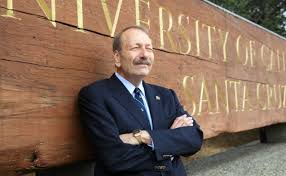
George R. Blumenthal is formerly UC Santa Cruz's 10th chancellor. He joined the campus in 1972 as a faculty member in astronomy and astrophysics and was named chancellor on September 19, 2007, after serving as acting chancellor for 14 months. The Blumenthal era has been marked by a commitment to ensuring that the doors of opportunity at UC Santa Cruz are open to all.
Blumenthal's appointment as chancellor followed many years as a distinguished professor, researcher, and campus leader. As a theoretical astrophysicist, Chancellor Blumenthal made pathbreaking contributions to our understanding of the origin of structure in the universe, including galaxies and clusters of galaxies, and to the role that dark matter plays in the formation and evolution of this structure. He is a co-author of two textbooks, 21st Century Astronomy and Understanding Our Universe.
As a senior leader in the University of California system, Blumenthal spearheaded the successful effort to redress past inequalities in per-student state funding of some UC campuses, known as "rebenching." He served as chair of the UC Academic Senate (2004-05), was the faculty representative to the UC Regents (2003-05), chaired the UC Santa Cruz division of the Academic Senate (2001-03), and served as chair of the UCSC Astronomy and Astrophysics Department.
In 2010, Blumenthal received the Oliver Johnson Award for Distinguished Leadership in the Academic Senate, the top UC honor for service at both the systemwide and campus levels. A vocal advocate for staff throughout the university, he received the Outstanding Senior Leadership Award from the Council of University of California Staff Assemblies (CUCSA) in 2012; he has been an honorary member of CUCSA since 2005.
Chancellor Blumenthal serves widely on many governing boards, including as vice chair of the California Association for Research in Astronomy, which oversees the W. M. Keck Observatory on the summit of Mauna Kea, Hawaii. In 2017, he was appointed to a seat on the governing board of the California Institute for Regenerative Medicine. He is also a board member of Joint Venture Silicon Valley and the Silicon Valley Leadership Group.
 Judit Camacho worked with SACNAS (Society for Advancement of Hispanics/Chicanos and Native Americans in Science) for the last 17 years and served two terms as executive director. SACNAS is dedicated to fostering the success of Hispanic/Chicano and Native American scientists—from college students to professionals—to attain advanced degrees, careers, and positions of leadership. Named a Champion of Change by Barack Obama, Judit is a passionate advocate for social change and the full involvement of diverse communities in the sciences. Judit first became involved with SACNAS as a student, while pursuing her mathematics degree from the University of California, Santa Cruz. She has also completed graduate coursework in public health from Johns Hopkins University, and life experience as a teacher, activist and mother of three children. She is now serving as co-executive director of Life Lab Santa Cruz. Life Lab is a national leader in the learning through gardening movement.
Judit Camacho worked with SACNAS (Society for Advancement of Hispanics/Chicanos and Native Americans in Science) for the last 17 years and served two terms as executive director. SACNAS is dedicated to fostering the success of Hispanic/Chicano and Native American scientists—from college students to professionals—to attain advanced degrees, careers, and positions of leadership. Named a Champion of Change by Barack Obama, Judit is a passionate advocate for social change and the full involvement of diverse communities in the sciences. Judit first became involved with SACNAS as a student, while pursuing her mathematics degree from the University of California, Santa Cruz. She has also completed graduate coursework in public health from Johns Hopkins University, and life experience as a teacher, activist and mother of three children. She is now serving as co-executive director of Life Lab Santa Cruz. Life Lab is a national leader in the learning through gardening movement.
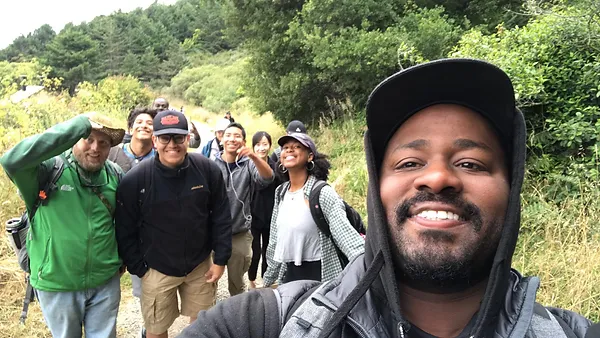 Dr. Justin Cummings is Supervisor from the Third District Santa Cruz County. He is a former Santa Cruz City Council member and former Mayor of the City of Santa Cruz in 2020. He holds a BA in Spanish and a BS in Biology from Eastern Illinois University in 2006 and a Ph.D. from the Department of Ecology and Evolutionary Biology with a designated emphasis in Environmental Studies from UC Santa Cruz in 2013. His dissertation work focused on understanding how native trees used for forest restoration inhibited the regeneration of invasive grasses in Panama.From 2013 – 2015, Justin worked as a post-doctoral researcher at Florida International University, where his work focused on understanding how changes in climate influenced the uptake and release of carbon in the Everglades. In 2015, Justin returned to Santa Cruz to help co-create and serve as the Founding Program Director of the UCSC Doris Duke Conservation Scholars Program (UCSC DDCSP), which seeks to grow diverse leadership to strengthen conservation. After being sworn in as Mayor of Santa Cruz in December of 2019, Justin stepped down from his position with the UCSC DDCSP to work as an environmental sensor technician and drone operator for the UC Natural Reserve System California Heartbeat Initiative. In this role he helped conduct drone surveys of ecologically protected and sensitive areas across the state of California. In addition to this work, he helped coordinate Drone Camp 2021 and also was the team lead for a 2021 UC NRS Post Fire Survey team that assessed the damage and regeneration of selected ecosystems from the 2020 fires. During this time he also helped to create and direct the UCSC CITRIS Initiative for Drone Education and Research, which brings together diverse students, researchers, and industry partners to fuel research and innovation, and develop a diverse drone workforce.
Dr. Justin Cummings is Supervisor from the Third District Santa Cruz County. He is a former Santa Cruz City Council member and former Mayor of the City of Santa Cruz in 2020. He holds a BA in Spanish and a BS in Biology from Eastern Illinois University in 2006 and a Ph.D. from the Department of Ecology and Evolutionary Biology with a designated emphasis in Environmental Studies from UC Santa Cruz in 2013. His dissertation work focused on understanding how native trees used for forest restoration inhibited the regeneration of invasive grasses in Panama.From 2013 – 2015, Justin worked as a post-doctoral researcher at Florida International University, where his work focused on understanding how changes in climate influenced the uptake and release of carbon in the Everglades. In 2015, Justin returned to Santa Cruz to help co-create and serve as the Founding Program Director of the UCSC Doris Duke Conservation Scholars Program (UCSC DDCSP), which seeks to grow diverse leadership to strengthen conservation. After being sworn in as Mayor of Santa Cruz in December of 2019, Justin stepped down from his position with the UCSC DDCSP to work as an environmental sensor technician and drone operator for the UC Natural Reserve System California Heartbeat Initiative. In this role he helped conduct drone surveys of ecologically protected and sensitive areas across the state of California. In addition to this work, he helped coordinate Drone Camp 2021 and also was the team lead for a 2021 UC NRS Post Fire Survey team that assessed the damage and regeneration of selected ecosystems from the 2020 fires. During this time he also helped to create and direct the UCSC CITRIS Initiative for Drone Education and Research, which brings together diverse students, researchers, and industry partners to fuel research and innovation, and develop a diverse drone workforce.
Justin was one of two African American men elected for the first time to the City Council in 2018 and was the first African American man to serve as Mayor of the City of Santa Cruz. During his time on the Council, Justin addressed topics such as the city budget, city revenue, land use, environmental protection and climate change, cannabis, UCSC growth, homelessness, public safety, city schools, COVID-19 recovery, clean energy, public health and the Santa Cruz Library. Policies that he has championed have focused on supporting diversity, equity, justice, and inclusion, affordable housing, tenant protections, assisting individuals experiencing homelessness, addressing accountability, transparency, and the use of force in policing, environmental protection, public health, and support for unions and small businesses, among other topics. As Mayor during 2020, he worked with community members and leaders across a variety of social, business, and government sectors to help Sant Cruz deal with the many challenges of 2020, which included the graduate student protests at UCSC, a recall election, the onset of COVID-19, social unrest after the murder of George Floyd, and the CZU fires.
As Third District County Supervisor, Justin is interested in prioritizing the following issues:- * Environmental protection and carbon emission reduction
- * Creating and supporting effective programs and services that promote public health, justice, diversity, equity, and inclusion
- * Sustainable land use planning and affordable housing production
- * Rebuilding and sustaining our community and economy due to COVID-19
- * Strengthen disaster preparedness, resiliency, and recovery from Climate Change impacts
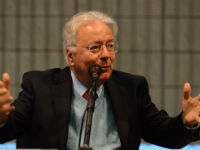 Federico Faggin is one of the founding technology giants of Silicon Valley. Born in Vicenza, Italy, Faggin received a laurea degree in physics, summa cum laude, at the University of Padua, Italy. In 1971, he led the team that built the world's first commercial microprocessor, the Intel 4004, followed by the Intel 8008, 8080 and 4040 microprocessors. Earlier, at Fairchild Semiconductor, he created the self-aligned MOS silicon gate technology in 1968, which made possible dynamic memories, non-volatile memories, CCD image sensors, and the microprocessor.
Federico Faggin is one of the founding technology giants of Silicon Valley. Born in Vicenza, Italy, Faggin received a laurea degree in physics, summa cum laude, at the University of Padua, Italy. In 1971, he led the team that built the world's first commercial microprocessor, the Intel 4004, followed by the Intel 8008, 8080 and 4040 microprocessors. Earlier, at Fairchild Semiconductor, he created the self-aligned MOS silicon gate technology in 1968, which made possible dynamic memories, non-volatile memories, CCD image sensors, and the microprocessor.
In 1974, he was co-founder and CEO of Zilog, Inc., the first company solely dedicated to microprocessors, where he conceived the Z80 microprocessor and the Z8 microcontroller, products that are still in high-volume production in 2015. He was also co-founder, CEO of Cygnet Technologies (1982), a pioneering company in the field of personal voice and data communications, and Synaptics, Inc. (1986), the developer of the touchpads and touchscreens that have revolutionized the way people interface with mobile devices. In 2003, Faggin became CEO of Foveon, a company dedicated to innovative CMOS image sensors.
Faggin received many prizes and honors, including the Marconi Prize, the Fermi Prize, the Kyoto Prize, and the 2009 National Medal of Technology and Innovation from President Obama, the highest honor the United States confers for achievements related to technological progress.
In 2011, Faggin founded the Federico and Elvia Faggin Foundation to support the scientific study of consciousness at US universities and other research institutes. In 2015 the Faggin Foundation has endowed a new Chair for the Physics of Information at Santa Cruz University supporting the study of 'fundamental questions at the interface of physics and related fields including mathematics, complex systems, biophysics, and cognitive science, with the unifying theme of information in physics.'
Faggin lives with his wife in the San Francisco Bay Area.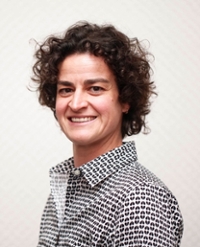 Genevieve Graves has had two careers. She earned her PhD in astrophysics at UCSC in 2009 studying the stellar populations of elliptical galaxies (Sandra Faber was her advisor). She discovered remarkable correlations between the structural properties of galaxies, and the compositions and ages of the stars that inhabit them. From these relations, Graves was able to construct the first plausible theory for how the star formation histories of ellipticals galaxies depend on their final structure.
Genevieve Graves has had two careers. She earned her PhD in astrophysics at UCSC in 2009 studying the stellar populations of elliptical galaxies (Sandra Faber was her advisor). She discovered remarkable correlations between the structural properties of galaxies, and the compositions and ages of the stars that inhabit them. From these relations, Graves was able to construct the first plausible theory for how the star formation histories of ellipticals galaxies depend on their final structure.
Her UCSC degree was followed by prestigious postdoctoral fellowships at UC Berkeley and Princeton. But then she felt the lure of Data Science and left astronomy in 2014 to co-found hiQ Labs, Inc. in San Francisco, where she serves as Chief Science & Strategy Officer. hiQ realized that a great deal of information about workers used to be hidden from public view but is now shared widely on the internet. It can be mined for powerful insights about companies, their employees, and job candidates. The science and software products hiQ offers allows employers to understand, engage, and retain their critical talent and unlock the true potential of their people.
Graves finds the startup world quite different but at least as exciting as academic research. She leads the science, engineering, and product teams at hiQ, including developing, validating, and deploying insights to their Fortune 500 customers. She says, “As a co-founder, I am involved in every aspect of the business. It is fascinating to help build a company from the ground up. I learn something new every day."
Graves lives in Santa Cruz with her husband, science fiction writer Alex Lamb, and their son Thorfinn.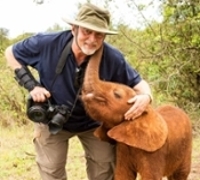
Steve Mandel founded Mandel Communications in 1983. Mandel seeks to ready business professionals for the kinds of pivotal conversations and presentations that move business forward. For more than 25 years, Mandel has been a renowned presentations trainer and coach and the author of the highly successful book, "Effective Presentation Skills."
In addition to serving as a key Mandel company executive, Mandel works directly with clients in one-on-one coaching and group workshop settings. He has a deep appreciation for the communication challenges faced by professionals and executives in high-stakes settings and works exceptionally well with mission-critical communication needs. Mandel Communications has clients in 75 countries around the world.
Mandel's business success and his avocation as an accomplished amateur astronomer have earned him special recognition in Forbes magazine. He is also an award-winning wildlife photographer with photos featured in the Smithsonian Museum and leads a nonprofit foundation in support of wildlife conservation in India.In 2008, Mandel was awarded the Chamblis Amateur Achievement Award by the American Astronomical Society. The Chambliss Award recognizes "an achievement in astronomical research made by an amateur astronomer... [that] contributes to the advancement of the science of astronomy.” Mandel was nominated by Adolf Witt of the University of Toledo for their joint work on wide-field imaging of high-galactic latitude cirrus using Mandel's remotely-controlled wide-field telescope in New Mexico. The pair discovered ubiquitous Extended Red Emission (ERE) caused by ultraviolet-excited photoluminescence from the cirrus dust clouds, amounting to ~30% surface brightness of the cirrus light.
He lives with his wife in the Monterey Bay area.
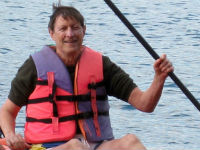 Robert Williams is Astronomer Emeritus at the Space Telescope Science Institute (STScI) in Baltimore, MD, having served as Director of the Institute from 1993-1998. The Institute, together with Goddard Space Flight Center, operates the Hubble Space Telescope for NASA. Before assuming his present position, Williams spent eight years in Chile as Director of the Cerro Tololo Interamerican Observatory, the national observatory of the U.S. in the southern hemisphere. Prior to that, he was Professor of Astronomy at the University of Arizona in Tucson for 18 years.
Robert Williams is Astronomer Emeritus at the Space Telescope Science Institute (STScI) in Baltimore, MD, having served as Director of the Institute from 1993-1998. The Institute, together with Goddard Space Flight Center, operates the Hubble Space Telescope for NASA. Before assuming his present position, Williams spent eight years in Chile as Director of the Cerro Tololo Interamerican Observatory, the national observatory of the U.S. in the southern hemisphere. Prior to that, he was Professor of Astronomy at the University of Arizona in Tucson for 18 years.
Williams' research specialties are nebulae, novae, and emission-linespectroscopy and analysis. He is a strong advocate for science education and outreach and has lectured around the world on recent discoveries from the Hubble Telescope and other forefront facilities on the ground and in space.
Williams received his undergraduate degree from the University of California, Berkely, in 1962, and a PhD in astronomy from the University of Wisconsin in 1965, where he was one of Don Osterbrock's first Ph.D. students. He was Senior Fulbright Professor at University London from 1972-3 and received an Alexander von Humboldt Award from the German government in 1991. In 1998 he was awarded the Beatrice Tinsely Prize of the American Astronomical Society for his leadership of the Hubble Deep Field, a ground-breaking image with Hubble that revealed the early Universe in full breath-taking detail for the first time. For this project he was also awarded the NASA Distinguished Service Public Service Medal in 1999.
Williams is an elected member of the American Academy of Arts and Sciences and is a past president of the International Astronmical Union, the world-wide organization serving professionsl astronomers and promoting international astronomy. He is preesntly Adjunct Professor at Johns Hopkins University in Baltimore, where he resides with his wife Elaine, a pediatric psychologist who specializes in the diagnosis and treatment of autism disorders. Together, they are co-founders of an organization in Baltimore that places adults with autism in the workplace.
